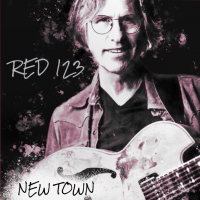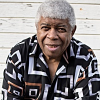Home » Jazz Articles » Reggie Workman
Jazz Articles about Reggie Workman
Archie Shepp: The Way Ahead, Kwanza, The Magic Of Ju-Ju Revisited

by Mark Corroto
Allow me to expand on a much restated quote from Albert Ayler: “Coltrane was The Father, Pharoah was The Son, and I was... The Holy Ghost." If we remain with the Christian iconography, that makes Archie Shepp, Simon Peter, or the Apostle Peter whom Jesus called the rock upon which he built his church. Christened by his tenure in the early 1960s with Cecil Taylor, Shepp was baptized into what we now call a modernist approach. In meeting Coltrane, a ...
Continue ReadingArchie Shepp: The Way Ahead, Kwanza, The Magic Of Ju-ju Revisited

by Chris May
2023 kicks off with the bangingest back-in-the-day bang from the Swiss-based ezz-thetics label, whose carefully curated and remastered 1960s sessions from Archie Shepp, Horace Silver, John Coltrane and Albert Ayler lit up the reissue calendar in 2022. Shepp's The Way Ahead, Kwanza, The Magic Of Ju-ju Revisited comes in at a whisker over seventy-nine minutes and includes all four tracks from The Way Ahead (Impulse!, 1968), two tracks from Kwanza (Impulse!, recorded 1969, released 1974) and the ...
Continue ReadingJohn Coltrane: Chasin' The Trane Revisited

by Chris May
A high-tide moment in jazz history, John Coltrane's November 1-5 1961 engagement at New York's Village Vanguard was exhaustively documented on a series of Impulse albums during the 1960s and 1990s. Those discs have now, in autumn 2021, been supplemented by the Swiss-based ezz-thetics label's magnificent Chasin' The Trane Revisited. Before examining the new album, it is worth getting its provenance straight... The first Impulse album, Live At The Village Vanguard, was released in 1962; it comprised what ...
Continue ReadingJune Birthdays Featuring Reginald Workman, NEA Jazz Master

by Marc Cohn
June jazz birthdays! Our featured honoree is bassist Reggie Workman, 82 years young, who got a fine birthday present: a 2020 National Endowment for the Arts Jazz Masters Award. So, we have three tracks from his own recordings, which may surprise you. One features Andrew Hill and Julian Priester. Other birthday honors include Marcus Belgrave (Horace Tapscott track), Grant Green, and Jaki Byard (Ken McIntyre track)—all with Mr. Workman on bass. Of course, there's more: reedmen Donald ...
Continue ReadingHeiner Stadler: Brains on Fire

by AAJ Italy Staff
Heiner Stadler è nome pressoché sconosciuto se non agli addetti ai lavori o a qualche curioso appassionato jazzofilo. Nasce nel 1942 a Lessen in Polonia, cresce ad Amburgo dove studia pianoforte, armonia e composizione al conservatorio, per poi trasferirsi nel 1965 a New York. Qui intesse una serie di relazioni con importanti musicisti dal background assai variegato (si va sa Benny Golson a Barre Phillips, da Joe Chambers a John Gilmore e Joe Farrell, da Dee Dee Bridgewater a Thad ...
Continue ReadingHeiner Stadler: Brains on Fire

by Hrayr Attarian
Heiner StadlerBrains on FireLabor Records2012One of the most exciting reissues of the first quarter of 2012 is composer and pianist Heiner Stadler's pioneering Brains on Fire, originally released in 1973. The two-CD reissue adds three lengthy, previously unreleased tracks and informative and well-researched liner notes by critic Howard Mandel. Interestingly, Stadler occupies the piano chair only on five of the eight pieces, recorded over a seven-year span in a ...
Continue ReadingTrio 3 + Geri Allen: Celebrating Mary Lou Williams (Live at Birdland New York)

by AAJ Italy Staff
Con Celebrating Mary Lou Williams (Live at Birdland New York) quattro figure storiche del jazz newyorchese quali come Reggie Workman, Andrew Cyrille ed Oliver Lake (ossia il Trio 3) tornano ad essere affiancati dalla pianista Geri Allen per celebrare la figura di Mary Lou Williams, una tra le prime donne affermatasi nel mondo del jazz alla metà degli anni '30. In primo piano troviamo alcune delle più rappresentative composizioni tra le trecento firmate dalla Williams che offrono un panorama assai ...
Continue Reading


















